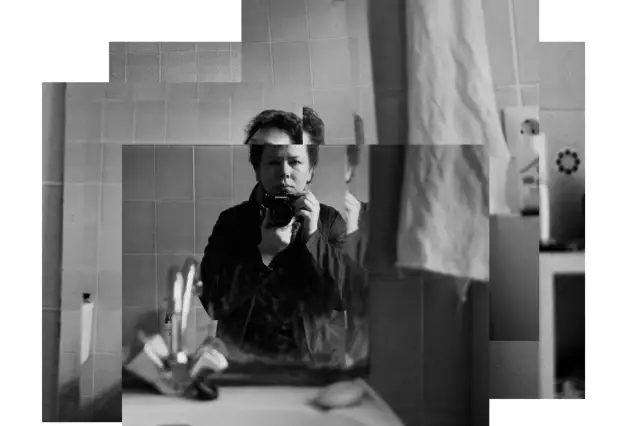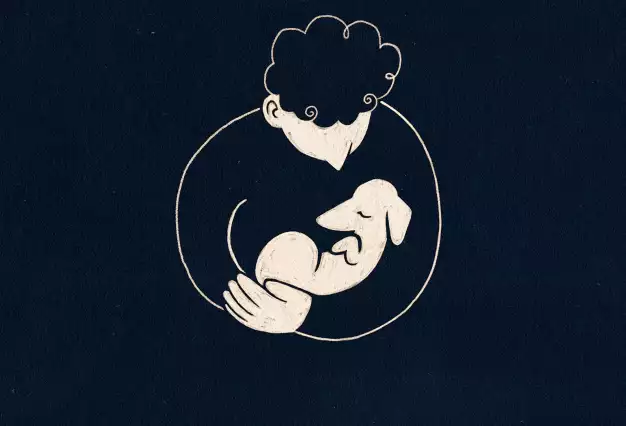
11 February 2020
Charlatan and Servants: Czech films at the Berlinale
Charlatan and Servants: Czech films at the Berlinale

Representing the Czech Republic at this year’s Berlinale are three feature-length fiction films, one documentary, and an animated short. First and foremost, the long-awaited new work by Polish director Agnieszka Holland, Charlatan, a majority Czech production, has been selected for the Berlinale Special Gala section. Other films, too, are raising hopes: Servants, by Ivan Ostrochovský, a minority Czech coproduction, is trying its luck in the new competition section called Encounters, while FREM, an experimental documentary by Viera Čakányová, will be appearing in Forum, and the animated Leaf by Aliona Baranová is screening in Generation Kplus. The fifth film is the restored version of Alfred Radok’s Distant Journey, which will be shown in the Berlinale Classics section.
Article by Hedvika Petrželková for CZECH FILM magazine / Spring 2020
“It is a duel between good and evil, playing out primarily in the soul of the main character,” Agnieszka Holland said in an interview with Total Film about Charlatan, which looks at recent Czech history. This is a subject close to Holland’s heart, one of many reasons why Czechs often consider her one of “ours.” The FAMU graduate has never made a secret of her close ties to the country where she studied film, and it shows in her care about its past and its present. This was more than clear in her HBO miniseries Burning Bush, which delved into a key period in modern Czech history, and for the first time for many Czechs gave a vivid portrayal of a man they consider a hero, Jan Palach.
Charlatan is a project by Marlene Film Production and producers Šárka Cimbalová and Kevan van Thompson. The Czech-Irish-Polish-Slovak coproduction features collaboration by Mike Downey, Sam Taylor – Film and Music Entertainment (IE), Klaudia Smieja Rostowska – Madants (PL), Czech Television (CZ), Barrandov Studio (CZ), Furia Film (SK), RTVS (SK), Certikon (CZ), and MagicLab (CZ). The film was made with support from the Czech Film Fund, the Polish Film Institute, the Slovak Audiovisual Fund, and the Prague Film Fund.
This film drama, written by Marek Epstein, was inspired by the life story of healer Jan Mikolášek, portrayed here by Ivan Trojan, one of the most popular film and theater actors in the Czech Republic today. His younger self is played by Trojan’s own 18-year-old son, Josef Trojan. In the important role of the healer’s assistant is Slovak talent Juraj Loj.
The true story of an exceptional man endowed with healing powers is told against a backdrop of historical events. Over the course of several decades, Mikolášek was approached by thousands of people from all walks of life, including some of the most important figures in Czechoslovak culture and politics. Despite his lack of professional or medical education, the healer possessed an unusual and inexplicable gift for determining diagnoses and treatments from urine. But his extraordinary abilities came at the cost of a battle with his own demons.
The author of the screenplay, the talented Marek Epstein, has already racked up numerous successes and awards, including the Czech Lion for In the Shadow (dir. David Ondříček, 2012), the Shanghai IFF Award for Václav (dir. Jiří Vejdělek, 2007). Holland has surrounded herself with renowned Czech and Slovak professionals in other departments as well: The cinematography was handled by Martin Štrba (who also worked with the director on Burning Bush), the set designer was Milan Býček (Czech Lion for Burning Bush), the costumes are by Katarína Štrbová Bieliková (Czech Lion for Masaryk), and the editor was Pavel Hrdlička (Czech Lion for Burning Bush). The score was composed by Antoni Komasa Lazarkiewicz, who also collaborated with Holland on the film Spoor and was awarded a Czech Lion for Burning Bush. The Czech premiere of Charlatan will be on March 26 in Prague.
Servants: collaboration or imprisonment
In Servants, Slovak director Ivan Ostrochovský looks back in time to the era of Communist Czechoslovakia. Set in early 1980s Bratislava, the film tells the story of two young boys entering seminary. There they encounter the dismal conditions of the Czechoslovak Catholic Church, which collaborated with the Communist regime through the organization Pacem in Terris.
The main characters are theology students Michal and Juraj. Their teachers, afraid of the seminary being abolished, train their pupils to accommodate the Communist Party, leaving each of the young seminarians to decide for themselves whether to succumb to temptation and choose the easier path of collaboration, or to maintain their faith and face pressure from the forces of State Security.
The story and screenplay of Servants were written by well-known Slovak author Marek Leščák, winner of a Czech Lion for Marek Šulík’s The Garden (1995) and numerous Slovak Sun in the Net film awards (The Interpreter, 2019; Little Harbour, 2018; Blind Loves, 2010; The City of the Sun, 2006). Ivan Ostrochovský and Polish screenwriter Rebecca Lenkiewicz, who wrote the screenplay for the Oscar-winning film Ida, also collaborated on the script.
The film was produced by the Slovak company Punkchart films (producers Ivan Ostrochovský, Albert Malinovský, Katarína Tomková). This is the second film by Ostrochovsky, who debuted in 2015 with Koza, which premiered at the Berlinale. Servants will be screened in Berlin in the new competition section Encounters, designed to highlight new visions of film as a counterpoint and complement to the main competition.
The Slovak-Romanian-Czech-Irish coproduction was joined on the Czech side by Negativ (Petr Oukropec, Pavel Strnad), editor Jan Daňhel, and film make-up artist Lukáš Král. “What appealed to us was the topic of collaboration with the powers that be, plus the fact that Ivan’s first film, Koza, was such an original story with splendid cinematography. Servants is also visually unique and goes even further in its narrative method. Overall, it’s a film that stands out from local production and is really at the level of top European works,” says producer Pavel Strnad of Negativ.
The other coproducers on Servants are Point Film (RO), RTVS (SK), Film and Music Entertainment (IE), Libra Film Productions (RO), Hai Hui Entertainment (RO), and sentimentalfilm (SK). Support for the project came from the Czech Film Fund, Eurimages, the CNC (RO), the Slovak Film Commission, the Bratislava Municipality Fund (SK), and SRTV (RO). The film was also shot in the Czech Republic, including in the Plasy Monastery.
In the lead roles of the students are Slovak actors Samuel Skyva and Samuel Polakovič, while the dean of the theological faculty is played by Slovak director Vladimír Strnisko, and the secret police agent by Romanian actor Vlad Ivanov, who is best-known from the Romanian film 4 Months, 3 Weeks and 2 Days, which won the Palme d’Or at the Cannes IFF.
The Czech premiere of Servants will be in April of this year.
Distant Journey: expressing the inexpressible
This year’s Berlinale Classics section will feature Alfréd Radok’s Distant Journey. Initially released in March 1949, the film, a fictional love story set during the Holocaust, will be screened in Berlin in its digitally restored form, completed by the National Film Archive in 2019.
Distant Journey, Radok’s feature debut, gives a still unique answer to the question of how to express the inexpressible. The film depicts the fate of a Jewish family in Czechoslovakia during World War II — from the stifling atmosphere as they wait to be sent to a concentration camp, to their cramped life in the Terezín ghetto. Rather than convey the horror of Terezín camp directly, Radok juxtaposes the different visions that shaped the horrific reality of the Holocaust in a multilayered art reportage that combines a melodramatic story with echoes of expressionism and self-reflective experimentation.
For Radok, this sensitive topic is based on personal experience. He was of Jewish origin and at the end of World War II was in an internment camp that he managed to escape. Although the film was a great success abroad and won many awards, it was withdrawn from distribution in then-Communist Czechoslovakia almost immediately after its premiere, due to “inappropriate” themes — officials objected to its portrayals of racial persecution.
In 1968, the director and his family emigrated to Sweden, which subsequently became a second home for him. Radok (1914–76), as founder of the world’s first multimedia theater, Laterna Magika, was one of the most important Czech and European directors of the 20th century’s latter half, and his works still rank among the greats of the Czech modern era.
FREM: a land beyond the borders of perception
Director Vera Čákanyová’s documentary FREM is what she calls a reaction to the current wave of post-humanist thinking incited by the development of technology and artificial intelligence, as well as by the climate crisis.
“The human species is beginning to realize its insignificance and transience and the human identity is in crisis,” the creators say in the official synopsis. “FREM attempts to reflect this feeling and creates a dehumanized and alienated view of the countryside and nature beyond the human perception of reality. The fragmentary thoughts and snippets of dialogue, the motley music interrupted by noises and glitches, and the seemingly confused, unchained camera, create a disturbing philosophical reflection on the limits of anthropocentric thinking.”
Subtitled A Requiem for Homo Sapiens, FREM was produced by Hypermarket Film in coproduction with Czech Television and Punkchart films (SK). The experimental 70-minute film was supported by the Czech Film Fund, Creative Europe MEDIA, and Eurimages. It will be screened in Berlin in the Forum section. The Czech premiere took place at the Jihlava Documentary Film Festival.
Leaf: looking for home
“A huge sailor receives a lovely autumn leaf from a little girl. It reminds him of his home. How long has he been away? The sailor takes off in search of his memories. What will he find there?” This is the synopsis of Aliona Baranova’s Leaf, which will be screened in the Generation Kplus section at Berlinale.
The film was produced by Tomáš Baťa University in Zlín, where the author completed her studies in the Animation Studio. Baranova, who was born in Belarus, explores the themes of home and aging parents in her poetic graduation picture. Similar topics appeared in her successful undergraduate film Home, about a young man in search of his identity.
“It’s more like I register the feelings of a foreigner who has adapted well to a new environment in general, rather than my own experience as a Belarussian in the Czech Republic,” as Baranova said in an interview for the Czech version of Laydeez Do Comics.




